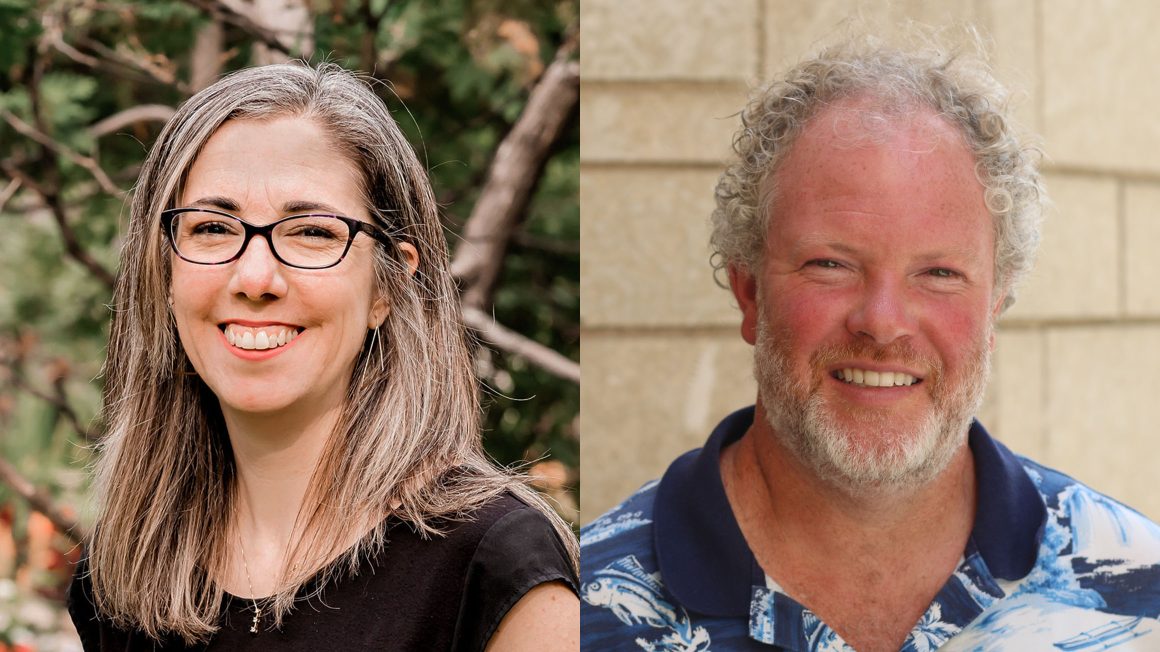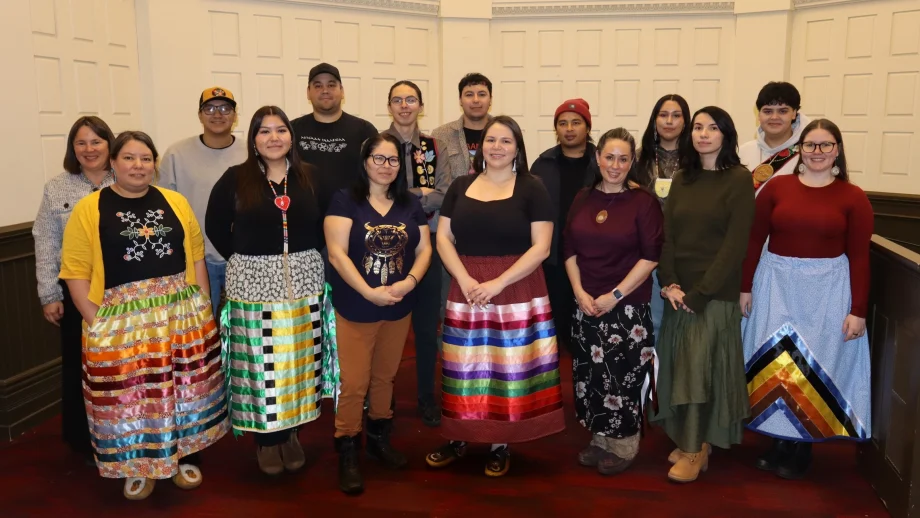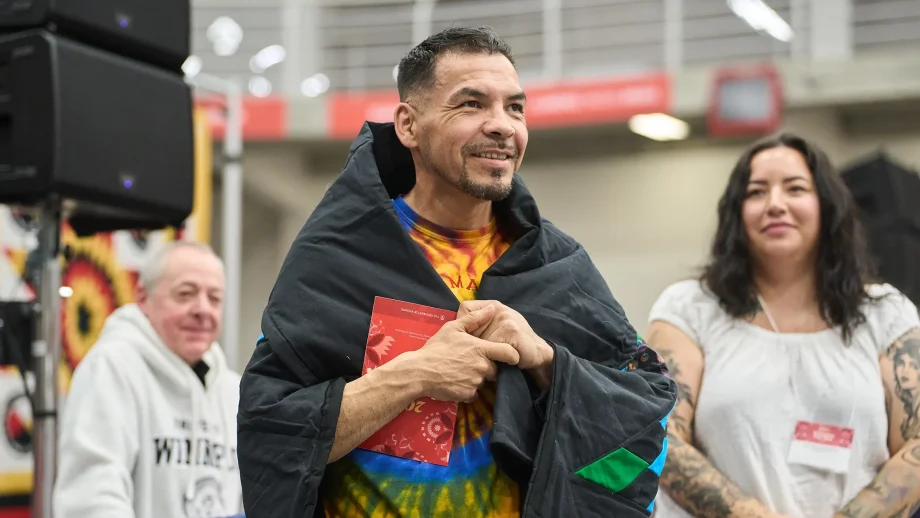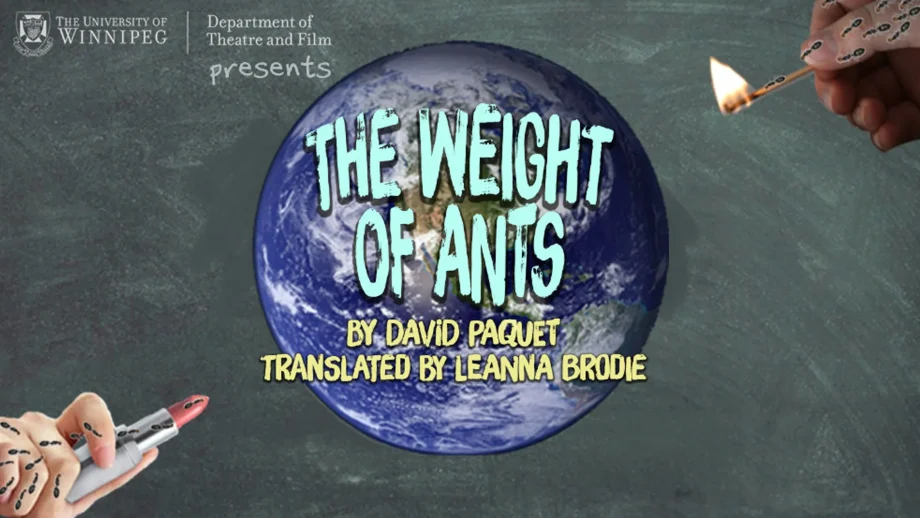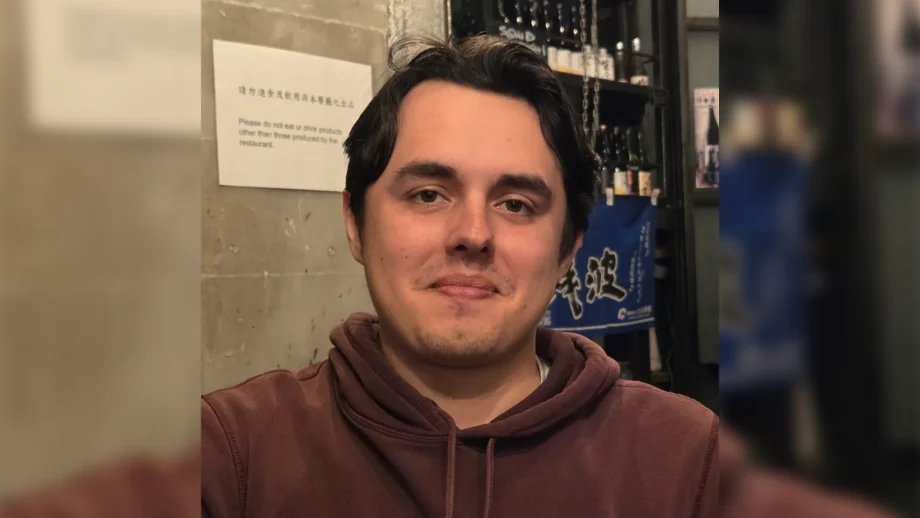This year’s 2025 Chancellor’s Research Excellence Chair and Chancellor’s Emerging Research Award have been given to Dr. Conor Whately, Professor in the Department of Classics, and Dr. Stephanie Bugden, Assistant Professor in the Department of Psychology.
Both are committed to research excellence in their respective field of study that positively impact our students and scholarship on campus.
Chancellor’s Research Excellence Chair | Dr. Conor Whately | Classics
Unraveling the mystery of the psychology of Roman soldiers through letters.
Scattered across Egypt, Syria, and Northern England are letters of Roman soldiers written in Greek or Latin script. Fascinated by the ordinary lives of the Roman soldier, Dr. Whately is going through an array of private letters, and some related to service matters, between about 1 and 650 CE to help us understand the lives of these men.
“The letters are mostly peace time letters, though there are a few, even from women, that hint at wartime issues,” said Dr. Whately.
With an established international reputation in his field of Late Antique and Byzantine history, this three-year term as Chancellor’s Research Excellence Chair will aid Dr. Whately’s quest for The Inner and Public Lives of Roman Soldiers project.
The letters, written on papyrus or wood, will help us understand the psychology of ancient and early medieval Roman soldiers, filling a gap in ancient military history that usually focused on elite officers, or generals.
“What draws me in, and I’ve long been interested in some of the military strategy, is the people’s side is so interesting to me,” said Dr. Whately. “I’ve long been interested in the soldiers that are based on the frontier, on the outskirts of the empire and their interactions with local communities.”
Postdoctoral Fellow Dr. Lucas McMahon is working with Dr. Whately using digital mapping techniques to help plot the routes of the soldiers’ travels to help us understand the psychology of the soldiers.
“Dr. McMahon’s expertise will be employed to chart the movement of letters across the empire considering questions like how long it took, how fast they would move, and so forth,” explained Dr. Whately.
The results of his research will result in a book, that is revolutionary in helping fill the gap in the history of ordinary Roman soldiers.
Chancellor’s Emerging Research Award | Dr. Stephanie Bugden | Psychology
How do young brains learn math?
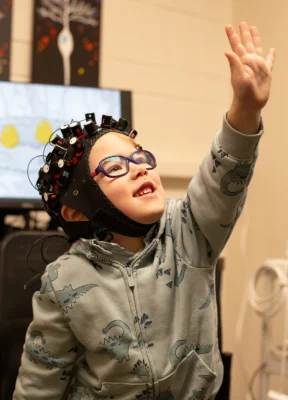 Math is very important for our overall well-being. “Numerical abilities predict a wide range of life outcomes including mental health, job prospects, mortgage default rates, and the ability to understand medical prescriptions. In fact, children’s math skills at school entry are a stronger predictor of long-term academic success than reading skills,” explains Dr. Bugden.
Math is very important for our overall well-being. “Numerical abilities predict a wide range of life outcomes including mental health, job prospects, mortgage default rates, and the ability to understand medical prescriptions. In fact, children’s math skills at school entry are a stronger predictor of long-term academic success than reading skills,” explains Dr. Bugden.
But how does mathematical understanding begin in the brain?
Dr. Bugden’s research aims to uncover how the brain supports early number learning in children, even before they start school, and how their environments shape this foundation.
Dr. Bugden studies a key skill known as cardinality, the understanding that the word “three” refers to a set of three objects, like three apples. Many young children can recite numbers early on, but learning what those numbers mean is a much harder and longer process.
The Chancellor’s Emerging Research Award will help Dr. Bugden fund her team of UWinnipeg psychology students. Her team uses child-friendly brain imaging tools to observe how two-to-five-year-old children’s brains respond to count sequences and connect number words to quantities. This funding gives students hands-on research experience, which gives them a competitive edge in admissions to psychology or neuroscience graduate programs.
“This research will capture variations in children’s early brain development and track them over time,” says Dr. Bugden. “By tracking brain development over time, we can look at how brain measures predict learning trajectories, and pinpoint biomarkers for kids struggling to learn math.”

